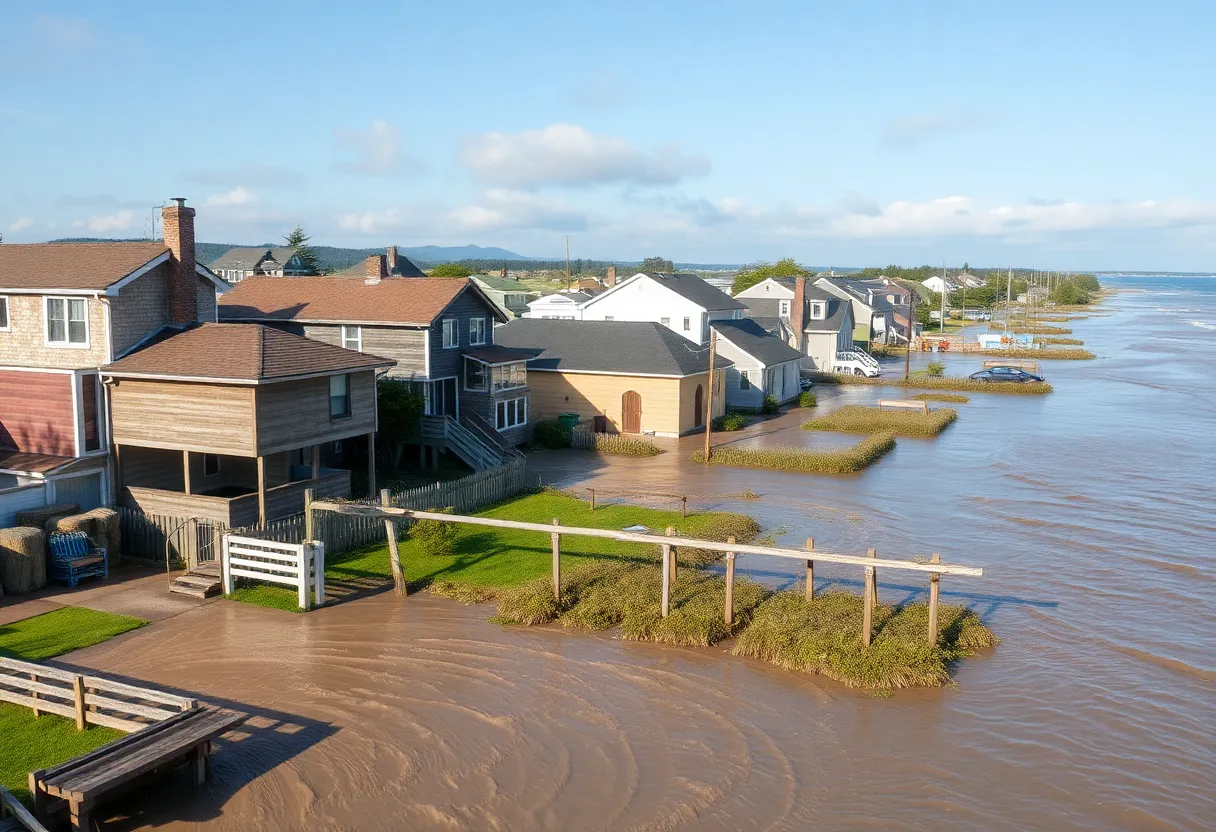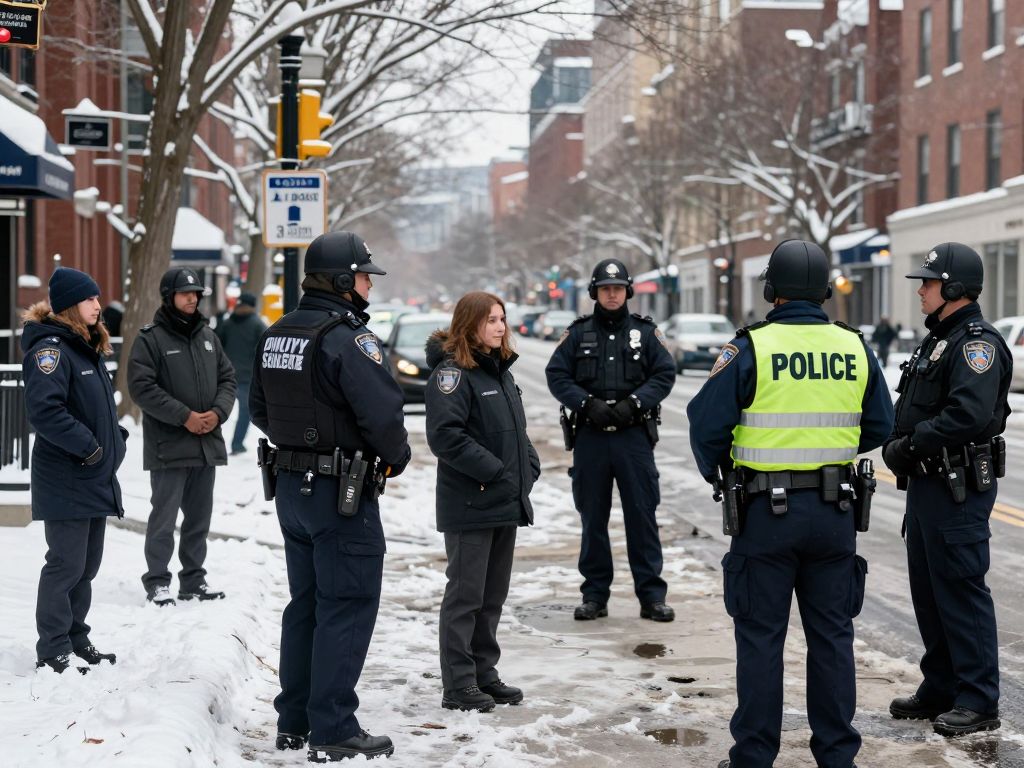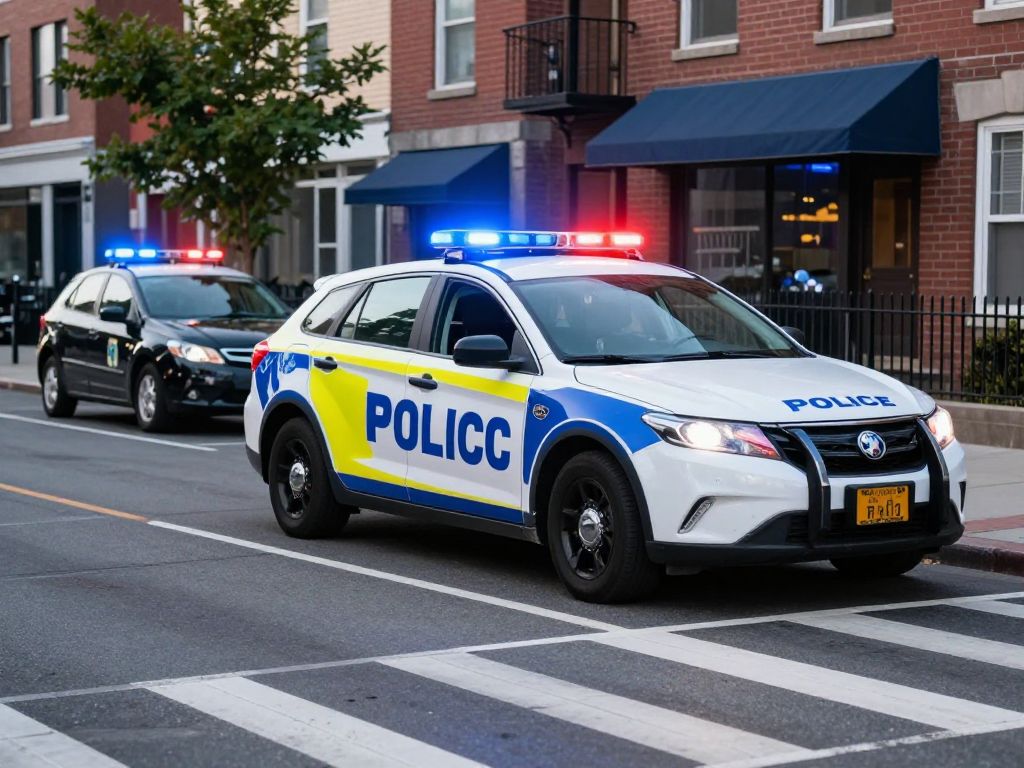Winthrop, October 25, 2025
News Summary
Winthrop has lost two state grants totaling approximately $1.2 million due to noncompliance with the MBTA Communities Act, which requires communities to rezone for multifamily housing. The denial of an $819,829 grant for Morton Street and a $405,020 grant for Fishermen’s Bend highlights the town’s ongoing resistance to state mandates, leading to questions about local control and potential repercussions for climate resilience efforts.
Winthrop — Winthrop’s refusal to comply has resulted in the loss of two state grants totaling approximately $1.2 million, which were aimed at addressing flooding issues in vulnerable areas of the town.
What happened
The Executive Office of Energy and Environmental Affairs (EEA) notified Winthrop that they would not receive an $819,829 grant for Morton Street and a $405,020 grant for Fishermen’s Bend due to noncompliance with the MBTA Communities Act. These grants were part of state funding intended for flood mitigation in neighborhoods identified as vulnerable to coastal and stormwater flooding.
Why the grants were denied
The MBTA Communities Act requires all communities in the MBTA service area to rezone at least one area for multifamily housing by right. The law makes compliance a condition for participation in certain state programs, including the Municipal Vulnerability Preparedness (MVP) grant program, and affects access to other state funding streams.
Compliance with the MBTA Communities Act is a condition for participation in the Municipal Vulnerability Preparedness (MVP) grant program and impacts access to other types of state funding. The EEA has used this requirement to determine grant eligibility for climate resilience projects, and municipalities that remain noncompliant can be excluded from grant awards tied to the program.
Local decisions and political dynamics
A small group of towns in Massachusetts, including Winthrop, is defying the state’s MBTA Communities Act, which mandates changes to local zoning laws for multifamily housing. Opposition in Winthrop stems from a desire for local control over land use decisions, with some councilors arguing that the state should not dictate municipal zoning.
Efforts to follow the law in Winthrop have encountered resistance within the town government. Efforts to comply with the MBTA Communities Act in Winthrop have been complicated by town council votes against zoning proposals that would meet the law’s requirements. At least one compliance proposal aimed at creating overlay districts in already developed areas was rejected by the Town Council.
Winthrop’s Town Council previously rejected a compliance proposal aimed at creating overlay districts in existing developed areas, which would not have resulted in new construction. That vote and similar decisions have kept Winthrop out of compliance and directly affected the town’s eligibility for state grant programs tied to compliance.
Key local voices and actions
Within the council, positions diverge on how to respond. Councilor Jim Letterie has publicly rejected plans for compliance, questioning the need for new housing units, while Councilor Hannah Belcher argues for compliance to secure state funding without negative impacts on the community. The disagreement among elected officials has translated into broader public debate and community organizing.
The ongoing conflict has led to a grassroots recall effort against a town councilor in Winthrop, highlighting significant local resistance to changes imposed by the MBTA Communities Act. Local residents believe the law undermines their community’s control and has sparked personal disputes among town members, illustrating the divisiveness the issue has created.
State enforcement and timeline
The law, passed by the Democratic-controlled Legislature in January 2021 and signed by former Republican governor Charlie Baker, has been in effect for nearly five years. The Massachusetts Supreme Judicial Court upheld the law’s constitutionality and confirmed the state attorney general can enforce compliance.
The Massachusetts Supreme Judicial Court upheld the law’s constitutionality and confirmed the state attorney general can enforce compliance. The Attorney General’s office has set compliance expectations with a clear deadline and enforcement posture.
Attorney General Andrea Campbell has signaled that communities must comply with the law by January 2026 or face enforcement actions. Towns that remain noncompliant after that date risk formal enforcement steps by the state.
Impact on climate resilience and state partnerships
Local climate advisory groups have warned that losing state grant funds will slow or halt planned resilience measures. The Citizens Advisory Commission on Climate is advocating for action on flooding prevention, emphasizing the critical need for state funding for vulnerable neighborhoods. Members of the commission have also noted that the town’s refusal to comply has broader implications for long-term partnerships with the state, according to members of the Citizens Advisory Commission on Climate.
Context and broader trends
The ongoing resistance to the law reflects a broader pushback against state mandates for housing development across suburban communities in Massachusetts. State-level requirements tied to the MBTA Communities Act have created similar disputes in several municipalities within the MBTA service area, where local officials and residents weigh concerns about housing change, municipal authority, and access to state funding.
Immediate next steps for Winthrop
- Town officials can choose to adopt zoning changes that meet the MBTA Communities Act standards to restore grant eligibility.
- The town may seek alternative funding sources for flood mitigation while compliance discussions continue.
- State enforcement timelines indicate a January 2026 deadline for compliance, after which enforcement actions may follow.
Frequently Asked Questions
Why did Winthrop lose state grant funding?
Winthrop’s refusal to comply has resulted in the loss of two state grants totaling approximately $1.2 million, which were aimed at addressing flooding issues in vulnerable areas of the town.
Which grants were denied and why?
The Executive Office of Energy and Environmental Affairs (EEA) notified Winthrop that they would not receive an $819,829 grant for Morton Street and a $405,020 grant for Fishermen’s Bend due to noncompliance with the MBTA Communities Act.
What does the MBTA Communities Act require?
The MBTA Communities Act requires all communities in the MBTA service area to rezone at least one area for multifamily housing by right.
Is compliance linked to other state programs?
Compliance with the MBTA Communities Act is a condition for participation in the Municipal Vulnerability Preparedness (MVP) grant program and impacts access to other types of state funding.
Why are some residents and officials opposed?
Opposition in Winthrop stems from a desire for local control over land use decisions, with some councilors arguing that the state should not dictate municipal zoning.
What is the legal and enforcement timeline?
The law, passed by the Democratic-controlled Legislature in January 2021 and signed by former Republican governor Charlie Baker, has been in effect for nearly five years. Attorney General Andrea Campbell has signaled that communities must comply with the law by January 2026 or face enforcement actions.
Quick reference table
| Item | Detail |
|---|---|
| Town | Winthrop |
| Lost grant total | $1.2 million (two grants totaling approximately $1.2 million) |
| EEA grant amounts | $819,829 (Morton Street); $405,020 (Fishermen’s Bend) |
| State law | MBTA Communities Act — requires rezoning in MBTA service area |
| Compliance deadline signaled | January 2026 |
| Relevant state program | Municipal Vulnerability Preparedness (MVP) grant program |
| Local actions | Town Council rejected compliance overlay proposal; recall effort underway |
Deeper Dive: News & Info About This Topic
HERE Resources
Additional Resources
- Boston Globe: Winthrop’s MBTA Communities Act Defiance
- Boston.com: Winthrop Loses Million in Climate Grants
- Axios: Winthrop Housing Law Opposition Sparks Messy Recall Battle
- Wikipedia: MBTA Communities Act
- CBS News: Winthrop and the MBTA Communities Act

Author: STAFF HERE BOSTON WRITER
The BOSTON STAFF WRITER represents the experienced team at HEREBoston.com, your go-to source for actionable local news and information in Boston, Suffolk County, and beyond. Specializing in "news you can use," we cover essential topics like product reviews for personal and business needs, local business directories, politics, real estate trends, neighborhood insights, and state news affecting the area—with deep expertise drawn from years of dedicated reporting and strong community input, including local press releases and business updates. We deliver top reporting on high-value events such as Boston Marathon, Head of the Charles Regatta, and Boston Harborfest. Our coverage extends to key organizations like the Greater Boston Chamber of Commerce and Associated Industries of Massachusetts, plus leading businesses in finance, biotech, and insurance that power the local economy such as Fidelity Investments, Biogen, and Liberty Mutual Insurance. As part of the broader HERE network, we provide comprehensive, credible insights into Massachusetts's dynamic landscape.





